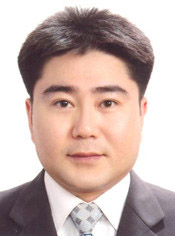A Systematic Understanding of Magnesium Corrosion Under Physiological Environments
by
Dr. Yongseok Jang, PhD
Post-doctoral Fellow
NSF ERC for Revolutionizing Metallic Biomaterials
North Carolina A&T State University
NSF Engineering Research Center + Bioengineering Joint Seminar Series
11 AM – 11:50 AM – Friday, October 11, 2013
McNair Hall Auditorium – College of Engineering
Abstract:
Biodegradability and mechanical properties similar to those of human bone make magnesium a promising candidate for use in biomedical implant devices. For effective use of these alloys, it is necessary to focus not just on matching their mechanical properties to the requirements of the medical device, but to also understand their degradation behavior in specific physiological environments. Biodegradation is fundamentally linked to metal "corrosion". Corrosion depends on the interfacial dynamics between the material and its environment. Identification and understanding the biological and material factors that govern the corrosion kinetics and mechanisms are of prime importance to the successful development of biodegradable implants. In vitro corrosion studies are conducted by controlled exposure of alloys to solutions that closely mimic physiological conditions, and contain various inorganic and organic salts. Corrosion products formed after in vitro tests are also composed of complex and various chemical compositions and crystal structures. Various parameters such as absorption of protein, flow induced shear stress, limited diffusion and stress affect the outcomes of the in vitro testing, just as they would in the in vivo environment. This can cause a disconnect in correlation between in vitro and in vivo testing. Thus, the various experimental factors for in vitro test should be carefully tuned to come up with results similar to in vivo testing. Dr. Jang’s presentation will focus on the understanding of biodegradation and corrosion products formed on the magnesium alloys under in vivo and various in vitro environments involving flow and diffusion dynamics, various biological relevant salts and mucin to mimic bone, blood vessel and airway environments.
About the Speaker:
Dr. Yongseok Jang earned his Ph.D in metallurgical engineering from Chonbuk National University, South Korea, in 2007. He also obtained his BS and MS degrees there. He studied characteristics of plasma electrolytic oxidation on magnesium alloys. During his PhD studies, he worked as a Research and a Teaching Assistant for the Department of Dental Biomaterials and the Institute of Oral Bioscience in the School of Dentistry. Upon receiving his Ph.D., Dr. Jang worked for 3 years as a research engineer for the R&D Center of Coavis Co. Ltd. of Sejong, South Korea. The company manufactures automotive fuel pump module and fuel system components for GM and Hyundai-Kia Motors. Since June 2011, Dr. Jang has been undergoing a postdoctoral fellowship at NC A&T State University’s NSF ERC-RMB under the mentorship of Dr. YeoHeung Yun, Associate Professor of Bioengineering. Dr. Jang is studying the corrosion and biodegradation behavior of magnesium alloys for the development of biodegradable medical devices. He is doing this via in vitro studies mimicking the human physiological environment as well as through in vivo testing of small animals.


